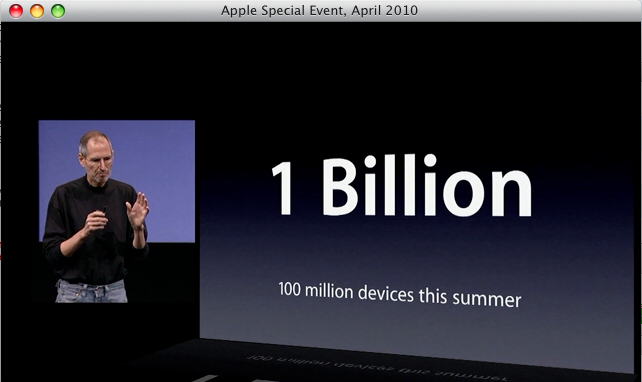The results all but confirmed a sudden slowdown in netbook sales in the early part of the year and suggested the business may actually be on the decline. Intel didn’t directly explain the shift, but an ongoing recovery from the recession and a more mature market are likely to give more buying power and greater interest in faster notebooks, especially following the addition of mobile Core i3, i5 and i7 chips.
The trend away from netbooks is likely to continue as Intel raised its profit margin estimates for the whole year from a range of 58 to 64 percent earlier to between 62 and 66 cents.
Source: Electronista
A tip of the hat to John Gruber for compiling this list:
Daring Fireball: Apple Netbook Claim Chowder.
14 October 2008, Doug Aamoth at CrunchGear: “Five Reasons Why an Apple Netbook Is a No-Brainer”:
When asked today about the possibility of an Apple netbook, Steve Jobs said something to the effect of, “The market is just getting started — we’ll see how it goes.”
Huh? Here’s how the netbook market’s going, Steve: pretty much every major computer company has a netbook but you. Apple’s a prime candidate for a netbook, too.
20 January 2009, Brian Caulfield at Forbes: “Apple’s Real Problem: Netbooks:”
The real problem is how Apple’s portfolio of expensive gear — particularly notebooks — will fare as the recession starts to bite.
21 January 2009, Brian X. Chen at Wired Gadget Lab: “Apple Still Oblivious to Netbook Opportunity”.
18 March 2009, Shane O’Neill at PC World: “Recession Breathes Life Into Windows PCs as Apple Gasps for Air”:
At this point, I’m going to stop asking when Apple will acknowledge these dark days we live in because I think the answer is never. Maybe Apple should just be a bull market company. When times are lean, it should pack up like a traveling carnival or disappear like a baseball team in winter and not come back until everybody’s rich and happy again.
24 March 2009, Scott Moritz at TheStreet.com: “Apple’s Netbook Foray Will Flop”
Nonetheless, design hubris and slumping sales will cause Apple to tap a hot segment of computer market.
19 August 2009, Charles Moore at The Apple Blog: “Lack of Netbook, Price Hurting Apple in This Year’s Back-to-School Market”.

